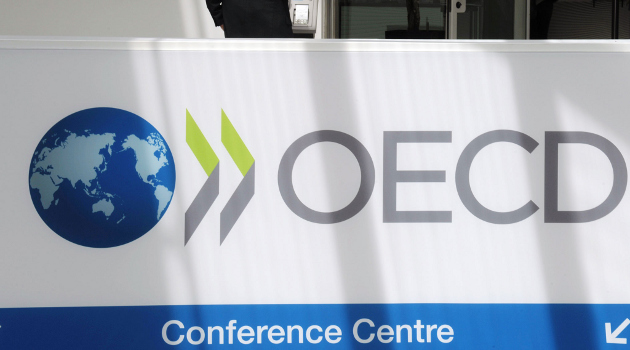The issue of taxing powers and direct funding has become an important issue because international organizations are challenging the contribution model and pushing for independent sources of revenue.
Proposed IRS Interest Reporting Regulation Threatens U.S. Economy
The rule will drive capital investment from the U.S., goes against 90-years of Congressional intent, costs more than it benefits, and threatens the lives and human rights of many investors.
OECD Subsidies Are Against U.S. Interests
Funding of the OECD should be cutoff until such time as the organization ends its campaign against low-tax jurisdictions and the principles of limited government.
Congressional Hearing on IRS Nonresident Alien Interest Reporting Proposal
Proposed IRS non-resident alien interest deposit reporting requirement received an unfriendly reception at an October 27 hearing held by a subcommittee of the House Financial Services Committee.
Monitoring the OECD’s Campaign Against Tax Competition, Fiscal Sovereignty, and Financial Privacy: Strategies for Low-Tax Jurisdictions
The tide is now turning against high-tax nations – particularly as more people understand that ever-increasing fiscal burdens inevitably lead to Greek-style fiscal collapse. Political changes in the United States further complicate the OECD’s ability to impose bad p…
An Update on the OECD’s Campaign Against Tax Competition, Fiscal Sovereignty, and Financial Privacy
The Paris-based Organization for Economic Cooperation and Development has an ongoing project to prop up Europe’s inefficient welfare states by attacking tax competition in hopes of enabling governments to impose heavier tax burdens. This project received a boost when th…
Government-Run Health Care Means Higher Deficits and Debt: Realistic Assumptions Show 10-Year Deficits Easily Could Exceed $600 Billion
The proposals on Capitol Hill will make government more expensive and increase deficits. Government programs almost always cost more than the preliminary estimates, and projections for healthcare spending have been notoriously inaccurate. Moreover, tax increases will no…
The Health Care Choice Act: Lowering Costs by Allowing Competition in the Individual Insurance Market
According to one estimate, freedom to purchase insurance policies issued in other states could save some families as much as 30 percent on their health policies. Unleashing the Constitution’s promise of unfettered interstate commerce is the most effective way of breakin…


